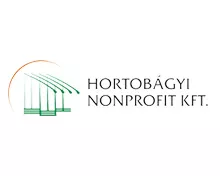General information
RDP Priority
- P4. Ecosystems management
RDP Focus Area
- 4A: Biodiversity restoration, preservation & enhancement
RDP Measure
- M11: Organic farming
Beneficiary type
- Non-profit organisation
Summary
The Hortobágy National Park, which is listed as a World Heritage, is Hungary's first and largest national park. The non-profit company Hortobágy Nature Conservation and Gene Preservation manages 7 500 hectares 6 800 ha of grassland, and 700 ha of arable land. The company also breeds native animal species, with traditional grazing. The company has been practicing organic farming for 30 years, making it one of the first certified organic farms in Hungary. In addition, the company specialises in the breeding of native animals, which is an activity of particular public benefit.
However, the company struggled to be financially sustainable, as the income from organic grazing livestock does not cover its maintenance costs. The funds received from the EAFRD grant are, therefore, an essential support for the company to continue its work focusing on the preservation of traditional and protected natural and cultural values, methods, and the breeding of domestic animals at risk of extinction.
Results
- The funding supported the continuation of traditional, organic farming of 7 500 hectares, and the breeding of native species in the Hortobágy National Park. As such, funding ensured that the traditional grazing and organic feeding of the Gray Cattle herd of the farm (one of the largest and oldest native stock breeds) was sustained.
- Because of the continuing upkeep and maintenance of the high-quality habitat and natural animal husbandry undertaken by the company, the Hungarian Gray Cattle Breeders’ Association entrusted the Hortobágyi farm with the management of their animals.

Promoter
Hortobágyi Nature Conservation and Gene Conservation Nonprofit Ltd.
Funding
- Total budget: approx.. 4 500 000 (EUR)
- EAFRD: approx..3 600 000 (EUR)
- National/Regional: approx. 900 000 (EUR)
Ressources
Context
The Hortobágy National Park is listed as a World Heritage, and it is Hungary’s first and largest national park. Around 7 500 hectares of the park are managed by the non-profit Hortobágyi Nature Conservation and Gene Preservation company. The main tasks of the company are to preserve, restore and maintain the protected natural values, landscapes, monuments, and pastoral traditions of the area, and to maintain an in-situ gene bank of protected indigenous domestic animals at risk of extinction. The company understands its work as a public service in nature conservation. Today, the estate is one of the largest certified organic farms in Hungary, managing 7 500 hectares, comprising 6 800 ha of grassland and 700 ha of arable land (for fodder production). Most of its land falls under the Natura 2000 classification.
The company keeps and breeds a significant number of native, domestic animals with traditional grazing, including 2 200 Hungarian Gray Cattle (organic), 200 buffalo, 1 100 racka sheep, and 500 Hungarian merino sheep. Many of the animals are used to carry out nature conservation management tasks. It also maintains the Mátai Stud, which has been in existence since 1671, and has the largest stud stock of Nonius horses, including all four breeding lines.
The company generates its income from selling live animals. It also supplies and operates the more than 300-year-old World Heritage Hortobágyi Csárda (a traditional Hungarian restaurant), offering traditional shepherd’s meals. The company employs between 160-170 people, of which around 50 are shepherds, but there are also maintenance workers, restaurant staff, administration workers, etc.
Objectives
The main aim of the funding was to keep the traditional way of farming alive. Central to this are the continuation of breeding native Hungarian animal species on traditional pastures, farming organically, and maintaining the ecological management of the area.
To achieve these ambitions in current market conditions (whereby the costs of inputs are disproportionately higher than the sale price of animals) there is a substantial need for financial support to remain financially viable and sustainable, even as a non-profit company.
A further aim of the funding was to support business development ideas regarding the processing of meat and raw materials in the future. This diversification would enable the farm to add value to its production, and thereby increase its income.
Activities
Project activities included:
- Continuation of organic farming and breeding native species of animals on the land.
- Maintaining the ecological management of the farm also allowed the business to keep its organic certification, which enabled it to apply for additional funding support.
Main results
- The funding supported the continuation of traditional, organic farming of 7 500 hectares, and the breeding of native species in the Hortobágy National Park. As such, funding ensured that the traditional grazing and organic feeding of the Gray Cattle herd of the farm (one of the largest and oldest native stock breeds) was sustained.
- Because of the continuing upkeep and maintenance of the high-quality habitat and natural animal husbandry operated on the farm, the Hungarian Gray Cattle Breeders’ Association entrusted the Hortobágyi farm with the management of their animals. Due to this business arrangement, the farm now receives affordable propagating material for breeding the stock on its land.
- Because the farm could maintain and retain their organic certification, they gained additional funding support for a period of three years.
Key lessons
- The currently persisting difficult economic conditions make organic and traditional grazing animal husbandry extremely difficult and economically unsustainable. Given the current circumstances, financial support is needed to continue operating. In the case presented, the EAFRD provided this valuable support. However, the future remains unpredictable.
- When seeking to obtain an organic certification, ensure that neither artificial fertilisers nor hormones are used on the farm. In addition, a sufficient number of animals need to be maintained for grazing the area.
- Without financial support, this project and the continuation of organic farming would not have been possible.
